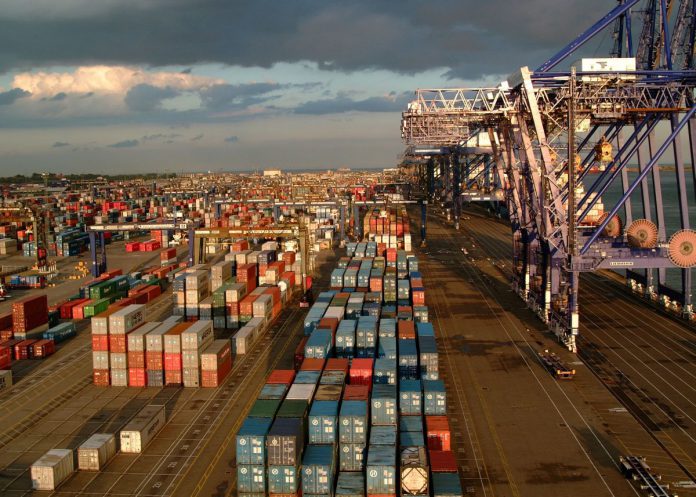The UK trade deficit shrank in July, the first reading since Brexit, after an increase in exports of goods and services.
The trade deficit narrowed to £4.5 billion in July from £5.6 billion the previous month, according to the Office for National Statistics. The trade deficit is the difference between imports and exports and is a main contributor to the UK’s economic growth.
The figure reflected a 2 percent increase in exports of goods and services, taking them to £43.8 billion, and a 0.5 percent drop in imports. Total goods exports grew by 4.3 percent to £0.8 billion, with increases in the export of food, beverages, machinery and fuel partially offset by a decline in exports of aircraft.
The reading will be an economic boost for the UK, joining the host of data suggesting that any economic repercussions from the result of the European Referendum may not be as severe as expected.
The figures have been helped by the dramatic depreciation of sterling since the Leave vote, with the pound 15 percent lower against other currencies in July compared with the same time a year ago. The ONS report is hopeful that a weaker pound will continue to boost trade, saying “depreciation should boost export and manufacturing competitiveness, and will potentially lead to higher long run volume growth.”
“A close long-run relationship between export and import prices is to be expected, as other factors such as raw material and labour prices are also significant prices drivers and tend to move in the same direction over time.”
However, trade figures can be misleading on a month-by-month basis. For the three months to the end of July 2016, which also took into account the entire month post-referendum, the trade deficit widened by £5.1 billion to £14.1 billion.
Howard Archer, chief UK and European economist at IHS Global Insight, commented:
“A major hope for the UK economy going forward is that the substantial overall weakening of the pound since the UK voted to leave the European Union in June’s referendum will increasingly feed through to boost foreign demand for UK goods and services.”

